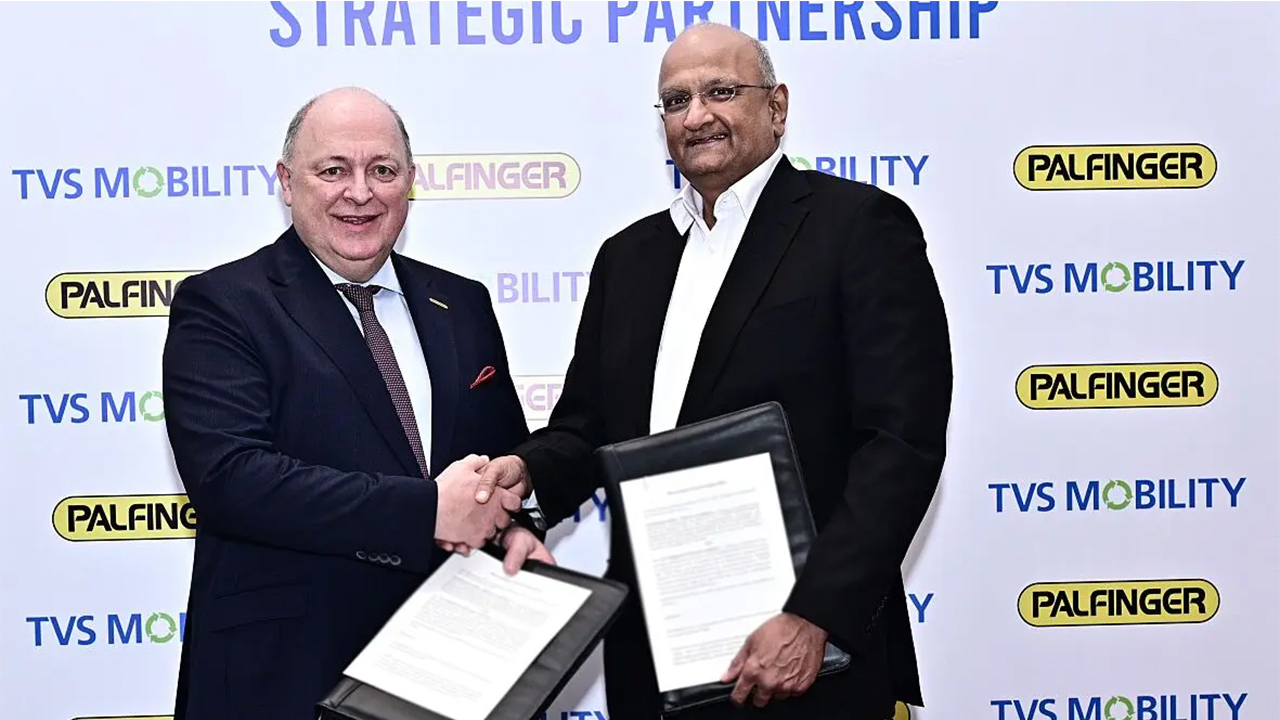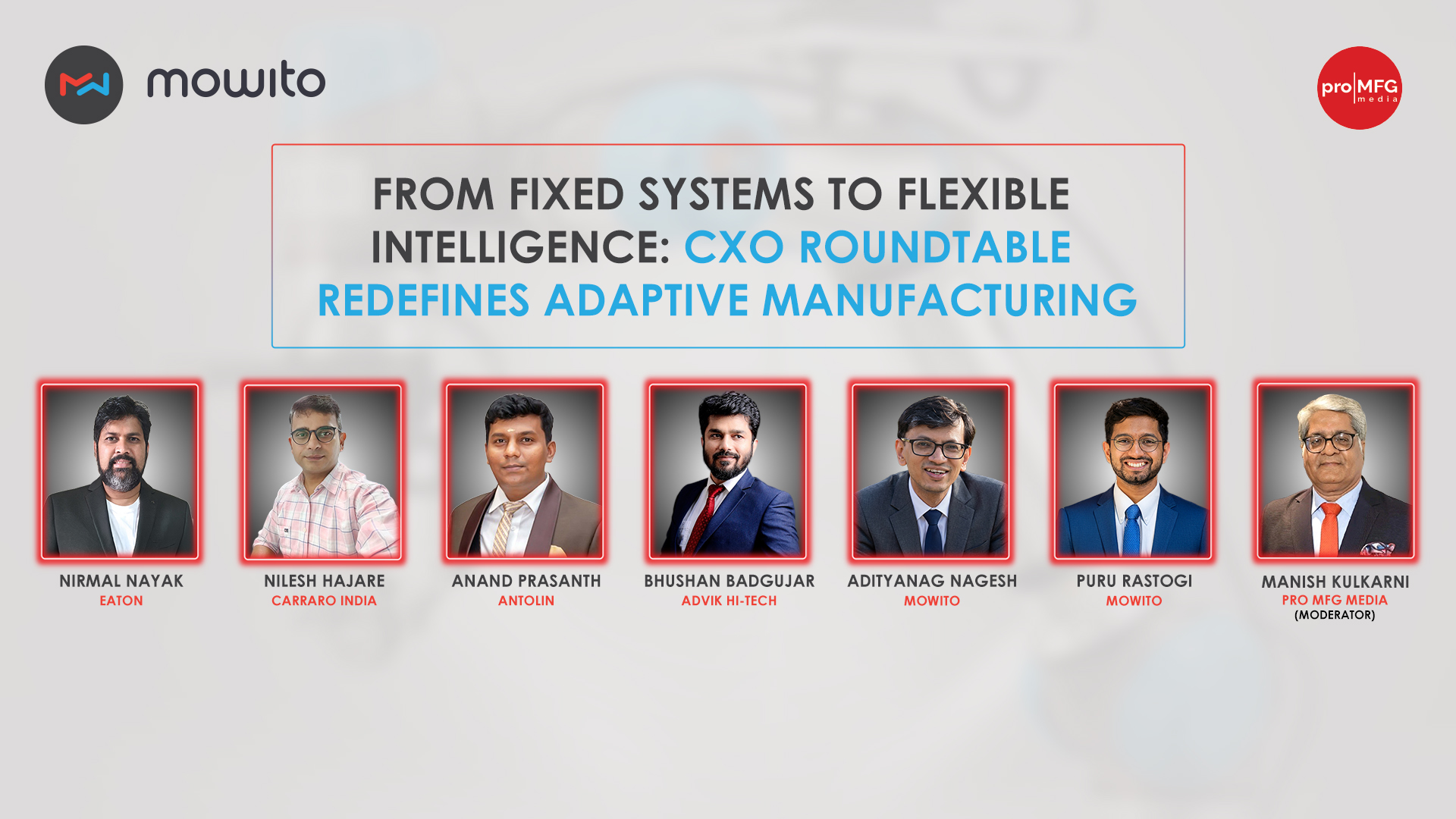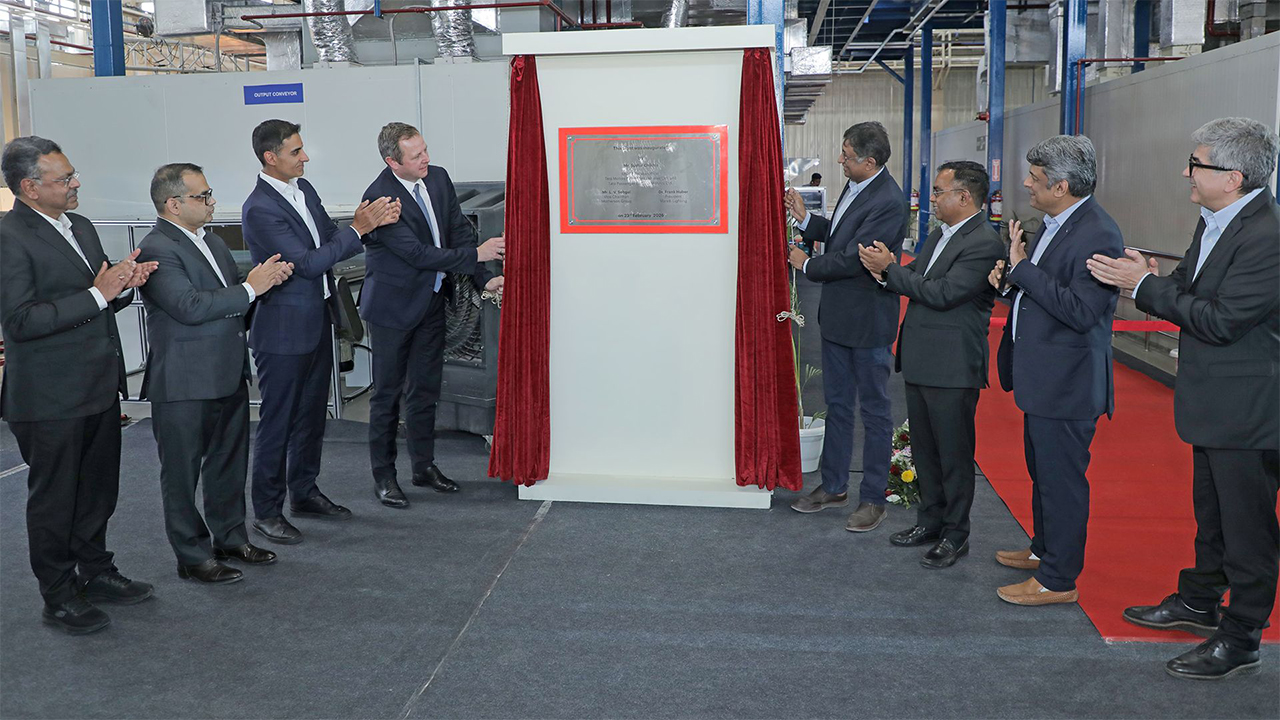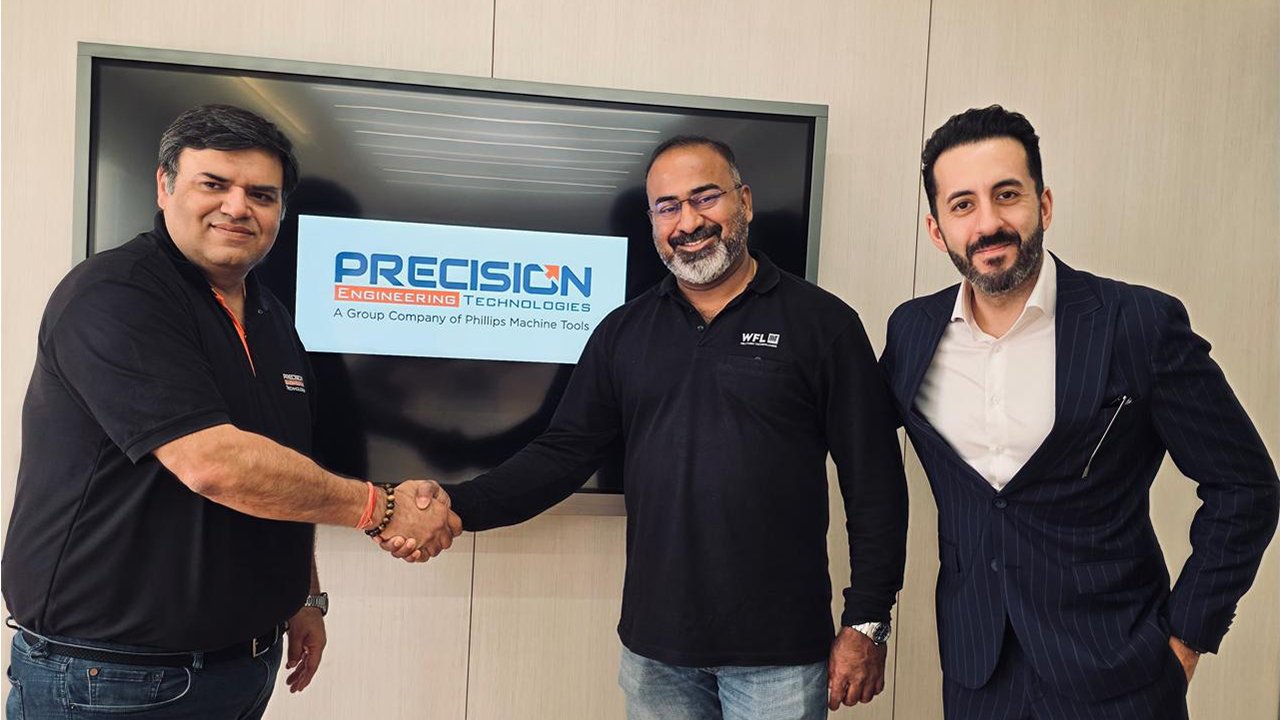Digitalization for NextGen Automotive Manufacturing
#Digitalization #Belden #AutomotiveManufacturing #OperationalExcellenceRenowned automotive industry leaders came together at a virtual event organized by Pro MFG Media recently to discuss the role of digitalization in the industry. These stalwarts shared valuable insights and strategies for creating digitized factories that deliver accelerated growth and transformative operational excellence.
June 2023 : The recently concluded ‘MEETING OF THE MINDS - Digitalization for NextGen Automotive Manufacturing’ - presented by Belden Inc. and powered by Pro MFG Media witnessed esteemed industry leaders coming together to discuss how digitalization can be utilized to accelerate innovation, to become agile, and to stay competitive. The event was supported by MeitY - Nasscom Center of Excellence, Centre for Industry 4.0 (C4i4) Lab, CMTI - Central Manufacturing Technology Institute, IITI Drishti CPS Foundation and the Advanced Manufacturing Technology Development Centre, IIT-Madras. Arjun Baxi presents an overview of the virtual event.
Industry leaders in the panel discussion included Bhuwan Lodha, Vice President Digital, Mahindra & Mahindra (Automotive), Anshum Jain, Chief Operating Officer, Daimler India Commercial Vehicles, Prashant Jagetiya, Head of Information Technology, Bridgestone India, Sanjiv Kumar Jain, Group Chief Information Officer, Krishna Maruti Group, Sirisha A, Head of Industrial Engineering & New Product Launch (Manufacturing), Continental, and Irwin Barneto, Solution Sales Manager, PA & Energy (West), Belden. The discussion was moderated by Manish Kulkarni, Co-founder & Director, Pro MFG Media.
Gaurav Shanbhag, Senior Solutions Consultant, Belden, set the context of the event by presenting an overview of digitalization in the automotive industry. He identified the common pain points faced by the industry as: safety, excess downtime, reduced throughput, low yield & quality, excess and / or spoiled product inventory, excess energy consumption and noncompliance with ESG standards. For dealing with these challenges, he also shared the key digital transformation strategies, namely: manufacturing automation, predictive analytics, traceability, human connectivity, safety and OT cybersecurity.
Underlining the rapid transformation in the automotive industry, Mr. Sanjiv Jain of the Krishna Maruti Group said that the industry has been going through a drastic change from having a repetitive manufacturing kind of process to being an agile customer-oriented industry. “Earlier, the industry was making a single model in a day but today, customer demands are changing on the fly. People want different models and the industry has to cater to this demand swiftly. We are making our systems so agile that we can be very fast in our changeovers. Equally important is the traceability of the products. Apart from that, IT and OT, which worked in isolation previously, are being integrated in the larger interest of the business. Today, both the systems are able to talk to each other and we are able to give a faster delivery and also make faster as well as correct decisions,” he explained.
From the OEM lens, Mr. Lodha of M&M (Automotive) said that the digitization of the auto industry means “no longer do we compete with other auto players: we compete with the customer experience expectations that e-commerce companies are setting out.” At the same time, he pointed out that people are becoming conscious of the quality of fit and finish, the quality of paint, the longevity of the available parts, and the overall design and beauty. “The movement from the traditional fuels to electric is also causing significant changes in the supply chains and software to serve customers after a car is sold. “To meet all these expectations, everything has to be top notch and hence quality systems and fault tolerance are very important to monitor and track. It is also important to ensure that our operations are more efficient than ever, that supply chains are predictable and connected real time,” he noted.
Mr. Anshum Jain of Daimler underlined the shift in automotive manufacturing. “Each and every aspect of the automotive landscape is getting transformed; the force behind this transformation is digitalization. Typically, the automotive industry has been known to make money or make profits based on mass manufacturing. But those days are slipping away fast. While our total volume may look very big, the variety within that total volume is so huge, that it’s not a mass manufacturing anymore. And if you take a traditional mass manufacturing approach, there is no way a typical worker on an assembly line can keep up with that amount of variation.” He also mentioned that while digitalization may not be a ‘100 percent’ solution, to a great extent the answer does lie in it.
Ms Sirisha of Continental highlighted the importance of digitalization in the context of defect tracking. She said: “At any point of time, whenever we have any defects, we are actually able to localize to that particular line, that particular placement machine, and at this level of granularity, you can actually localize the defects and reduce the turnaround time for analysis.” Citing the example of Continental’s in-house system of automatic replenishment, she added that even when the parts are getting manufactured, they are automatically transferred from the warehouse and are getting replenished, in one comprehensive system.
Systems are underpinned by digitization and data analytics to a great extent, pointed out Mr. Jagetiya of Bridgestone India. “Data is very important. More and more manufacturing organizations are realizing its importance. Organizations today understand why it is so important to have a real time visibility of what is happening on the shop floor. They know that capturing data for later analysis on how the machine is behaving, and how the operators are working can play a big role in enhancing the plant’s efficiency. “So, this has become a big tool to control not only efficiencies, but also the aspects of quality and safety,” he said.
Mr. Barneto of Belden remarked that data capture is an integral part of digitization and this data capture is not confined just to what is happening within the manufacturing plant but also related to a lot of external factors including customer choices and market dynamics. “A manufacturer is capturing the entire lifestyle and the complete user experience. And all this data that is getting captured is going into R&D as well as manufacturing. That is why there are so many variants available today, which has increased the complexity of the entire manufacturing line. With so much data available, it is important to extract this data securely and efficiently. It needs to be aligned with the KPIs of the business. This is where digitalization is useful.”
Towards the end of the discussion, the panellists also shared their takes on the upcoming trends. For example, Ms. Sirisha identified ‘Digital Twins’, whereas Mr. Lodha said that ‘AI in conjunction with other technologies’ will be the new direction. For Mr. Jain of Daimler, it was ‘Additive Manufacturing & Block Chain’. While Mr. Shanbhag said ‘Mixed reality’ would be the next trend, both Mr. Jagetiya and Mr. Barneto identified ‘Data Analytics & AI’ as the new trends.
The event also saw active participation from the audience in terms of relevant questions being asked to the panellists in the Q&A section. All panel speakers promptly and comprehensively addressed these questions that focused on topics like the use of data analytics to automation and from advanced tools and techniques to overcoming the barriers of legacy systems. Overall, the event was a great success.
NEWSLETTER
TRENDING ON PRO MFG
MORE FROM THE SECTION








